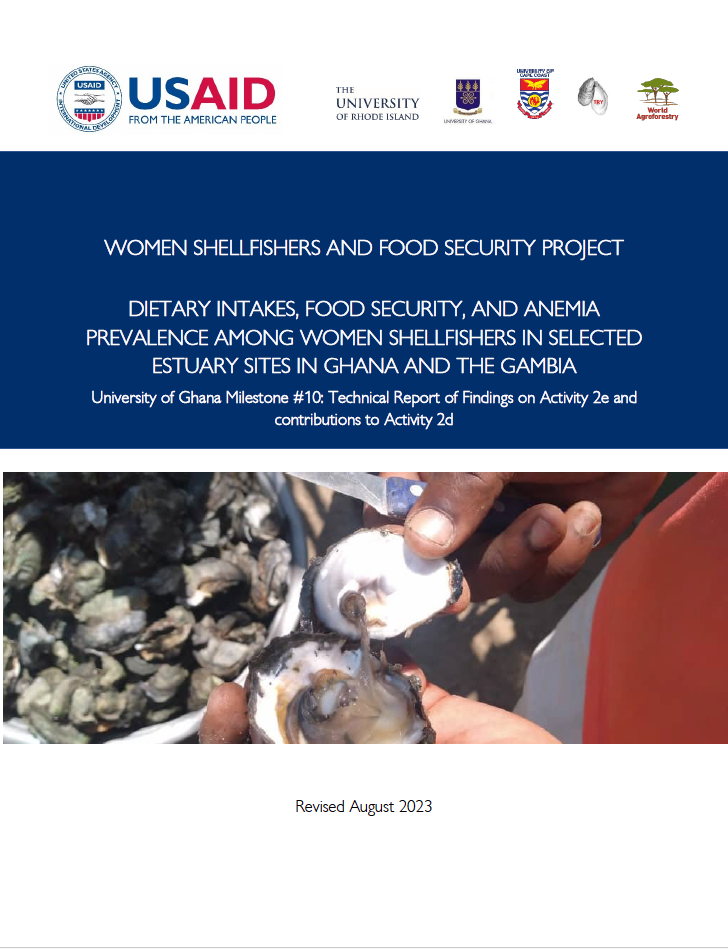Country
Profiles
Country
Networks
Country
Associations

Oyster shellfishing offers a rich source of iron and other nutrients for women shellfishers in Ghana and The Gambia, where anemia prevalence among women remains high. Success at oyster shellfishing depends on appropriate management of local shellfisheries resources. In estuarine communities where the local shellfisheries resources are poorly managed, decreased oyster yields and availability could deny women shellfishers of a potentially vital resource for income and the prevention of household food insecurity, low dietary diversity, and anemia. We aimed to compare nutritional outcomes among women shellfishers 15-49 years of age living at three estuary sites in Ghana and The Gambia. We hypothesized that within each country, lower household poverty and higher oyster consumption (potentially resulting from increased oyster yields due to improved management of shellfisheries resources) would be associated with: (a) lower household food insecurity, (b) greater likelihood of achieving minimum dietary diversity for women (MDD-W), and (c) lower prevalence of anemia. In addition, we aimed to determine the mineral and heavy metal concentrations of oysters collected from three estuarine sites in Ghana and evaluate whether heavy metal contamination is of concern to the health of women shellfishers at these sites.
- Author(s)
- Seth Adu-Afarwuah, Frank Kyei-Arthur, Zakari Ali, and Brietta M. Oaks
- Publisher / Institution
- University of Ghana Department of Nutrition, University of Rhode Island Department of Nutrition and Food Science and Coastal Resources Center, Graduate School of Oceanography, University of Rhode Island. Narragansett, RI, USA
- Date published
